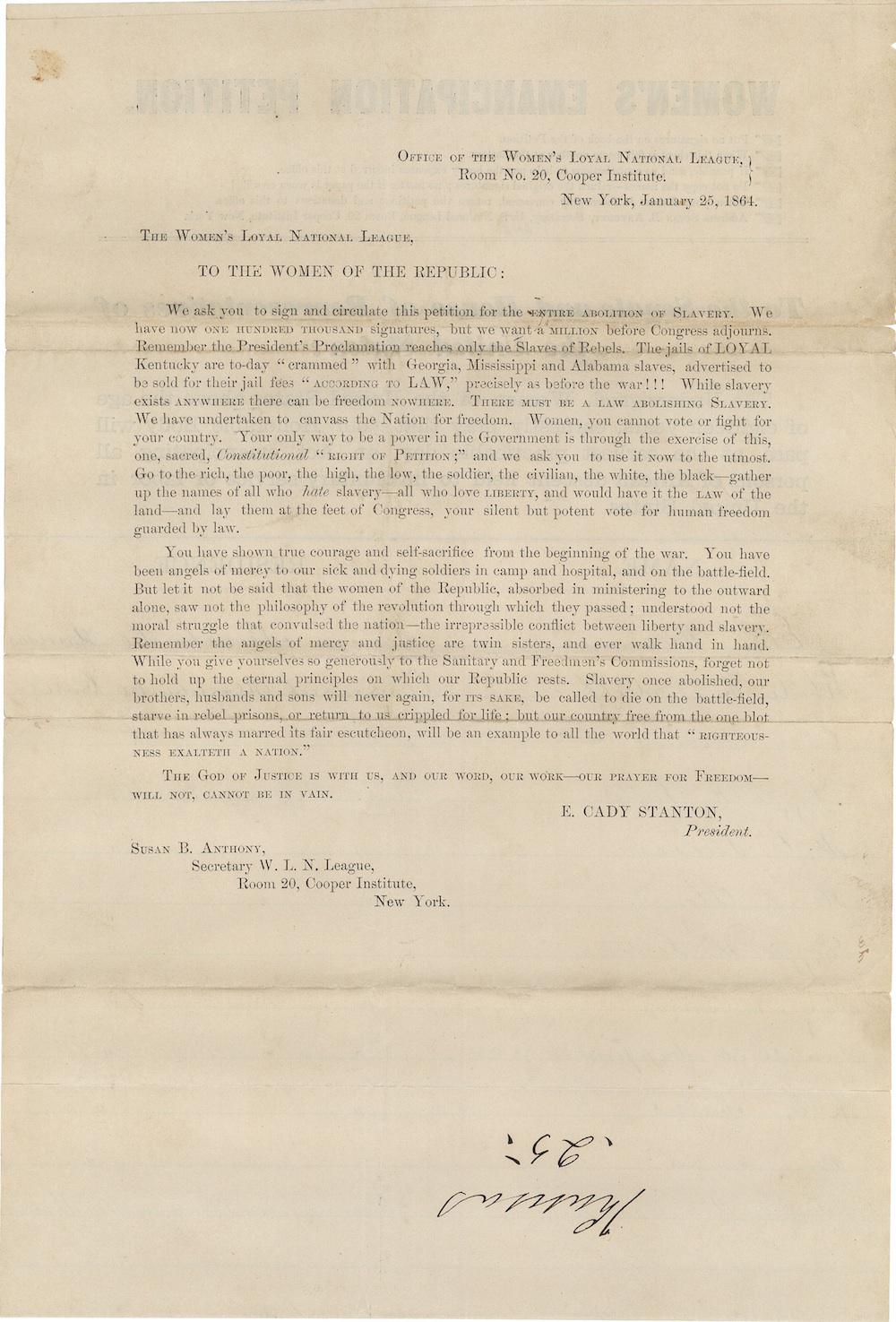The Vault is Slate’s history blog. Like us on Facebook, follow us on Twitter @slatevault, and find us on Tumblr. Find out more about what this space is all about here.
The Prologue: Pieces of History blog, published by the National Archives, just ran a post on anti-slavery petitions to Congress, including one from the Women’s Loyal National League, which was submitted in 1864 as the months-long push to pass the 13th Amendment heated up. This page is an Address to the League’s members, asking them to consider signing. Elizabeth Cady Stanton was the League’s president, and Susan B. Anthony was its secretary; both of their names appear at the bottom of the address’s text.
Previously, on this blog, I ran a petition from a group of women who lobbied Congress to put a stop to the Jackson Administration’s policy of Cherokee “removal.” That petition, registered in 1830, marked one of the first times that American women involved themselves in a matter of public debate. The authors of its text bent over backwards to show that they were still feminine, though they dared to speak in the public sphere.
Speaking to their base of supporters, Stanton and Anthony were not nearly so ostentatiously humble as the petitioners who assembled that protest against removal a few decades earlier. The two organizers slipped language relating to female enfranchisement into the petition’s address to potential signatories, reminding them, “You cannot vote or fight for your country. Your only way to be a power in the Government is through the exercise of this, one, sacred, Constitutional ‘RIGHT OF PETITION;’ and we ask that you use it NOW to the utmost.” (All types of emphasis in the original.)
By signing the petition, Stanton wrote, women could show that they “saw the philosophy of the revolution through which they passed.” They had sacrificed for the war effort and supported the men who fought on the Union side, not only because they were inherently nurturing, but also because they had an intellectual understanding of the cause’s rightness.
The petition eventually gathered almost 400,000 signatures.

National Archives.